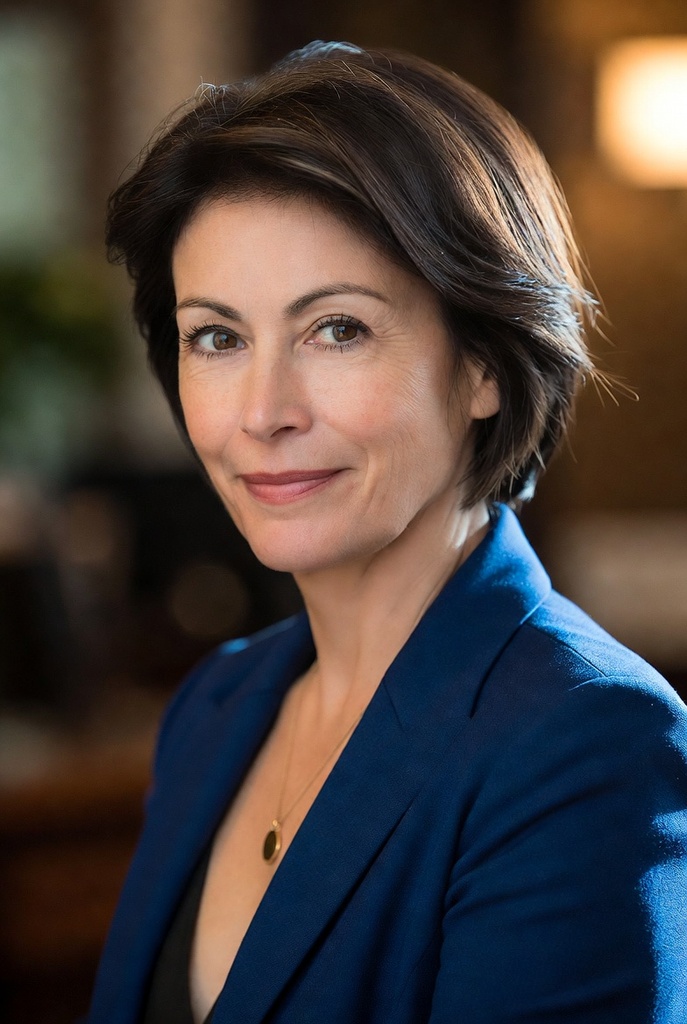I’ve been following online debates for a long time. The Brosius-Gersdorf case is a classic example of Russia’s online troops, the “fifth column” in Germany, and some naive individuals participating in this smear campaign to advance their selfish interests.
Judges and prosecutors pose a challenge to these online trolls. For years, their role has not only been questioned but outright denied. Prosecutors are seen as government executioners, while judges are viewed as pseudo-neutral helpers who make decisions not for the people but to please the government. The goal is to undermine trust in the fundamental pillars of our democracy: the independence of the judiciary and the acceptance of diverse opinions. This semantic reinterpretation—the reinterpretation of established state processes, institutions and symbols into a supportive stance toward the subversive “Deep State”—is currently unfolding before our eyes.
A Broad and Unholy Alliance Against a Single Person
The recent controversy surrounding Frauke Brosius-Gersdorf’s nomination to Germany’s Federal Constitutional Court has ignited a fierce and multifaceted campaign, raising profound questions about the resilience of democratic procedures in judicial appointments. The opposition to her nomination brought together an unusual coalition of actors—including Catholic bishops, conservative politicians, ultra-right online groups, and some centrist critics—highlighting a polarized political climate that risks undermining constitutional norms.
Examining this campaign within the broader context of international democracies reveals striking parallels. Judicial nominations have become battlegrounds for ideological conflicts, often accompanied by politically motivated smear campaigns and foreign influence.
This German dispute mirrors recent judicial nomination conflicts in other countries.
- In the United States, the Supreme Court confirmation processes have become intense ideological battles, particularly since the politicization surge in the 2010s. Nominees like Brett Kavanaugh and Amy Coney Barrett faced aggressive, often personal attacks from partisan groups. Conservative opponents accused nominees of judicial activism, while some critics on the right decried perceived “cosmopolitan” liberal judicial philosophies that support abortion rights, same-sex marriage, and environmental regulations. These disputes occur against a backdrop of deep partisan polarization and media saturation, with foreign influence often debated but less concretely established in public discourse.
- In Poland, judicial reforms pushed by the ruling Law and Justice Party (PiS) have triggered domestic and EU-wide criticism. Efforts to replace or control constitutional court judges have been framed by opponents as attacks on judicial independence and democracy. Additionally, nationalist and ultra-conservative groups mobilize against judges perceived as “cosmopolitan” or liberal, accusing them of eroding traditional values. Notably, some of these groups have ambiguous or indirect ties to Russian media narratives that echo anti-EU and anti-liberal democratic messaging, though formal Kremlin backing is less overt than suspected in other spheres.
- Hungary’s Orbán government has systematically installed loyalists in the judiciary while demonizing independent judges as “foreign agents” or part of a dubious cosmopolitan elite undermining national values. This campaign overlaps with Russian narratives promoting national sovereignty against Western liberalism. András Zs. Varga, appointed as President of Hungary’s Supreme Court (Curia) through tailor-made legislation, is a known Fidesz loyalist involved in controversial judicial appointments and decisions favoring the government. To centralize control over the judiciary, a special office responsible for judicial appointments, headed by political appointees loyal to Orbán’s party, was created. In 2011, forced early retirement of senior judges between ages 62 and 70 was implemented, effectively removing around 300 experienced judges and replacing them with younger, less experienced judges loyal to Fidesz. This included judges with minimal years on the bench, sometimes as little as 1.5 years, who were elevated rapidly to high positions like the Curia. Public exposure of these practices was made by judges like Adrienn Laczo, a former criminal judge who resigned in protest citing corruption and political pressure on the judiciary.
- Brazil: The Supreme Court’s confirmation of justices often sparks fierce criticism from populist factions aligned with former President Bolsonaro’s politics. These groups vehemently oppose nominees perceived as globalist or disconnected from traditional values, while simultaneously promoting nationalist rhetoric. The late philosopher and key intellectual inspiration for Bolsonaro’s right-wing movement, Olavo de Carvalho, influenced a network of online activists and media personalities who vocally oppose STF nominees labeled as “leftist” or “globalist.” Many of these followers utilize social media and alternative news channels to attack judicial candidates. Platforms such as Jovem Pan, Terça Livre, and various YouTube channels and podcasts disseminate nationalist rhetoric critical of the judiciary, portraying the court as disconnected from “traditional family values” and “patriotic interests.” Parties like PSL (Bolsonaro’s former party), Republicanos, and segments of PL (Partido Liberal) include members who resist court appointments perceived as threats to the conservative agenda and national sovereignty narratives. Notably, pro-Bolsonaro Social Movements, such as “Vem Pra Rua” and other conservative activist organizations, frequently mobilize protest campaigns against STF nominees or decisions, portraying the Court as overreaching or biased.
- Turkey: Lastly, Erdoğan has targeted judicial nominations and judges perceived as not aligned with the ruling AKP’s agenda. Dissenting judges are often framed as part of external conspiracies or “cosmopolitan” elites, a narrative that echoes in Russia’s own discourse.
German critics in favor of Russia
The German case involving Brosius-Gersdorf involves right-wing online actors who have amplified opposition narratives. Some of these groups and affiliated personalities have previously expressed sympathies with or had indirect connections to Russia. This is due to ideological alignment with Putin’s conservative, nationalist governance model or the dissemination of pro-Russian narratives online. The AfD and certain far-right elements in Germany have been linked to pro-Putin positions, including skepticism of Western liberal values and support for “traditional” family policies in opposition to progressive Western democracies. Similar links have been observed in other European countries where far-right parties or movements receive attention or covert support from Russian actors aiming to destabilize EU unity.
While no direct, verified financial flows or formal visits between Brosius-Gersdorf critics and Russian entities have been publicly confirmed, analysts note that the rhetorical patterns and coordinated online amplification bear a resemblance to Kremlin-led influence operations aimed at weakening European liberal democratic institutions.
Brosius-Gersdorf is a victim in a global proxy war between Russia and the West.
The campaign against Frauke Brosius-Gersdorf is part of a broader global trend where judicial appointments have become proxy battles over national identity, democratic values, and the balance between tradition and cosmopolitanism. While diverse actors participate, from religious institutions to political parties and online extremist groups, the recurring thread is an attempt by some to weaken democratic procedures and pluralistic norms through politically charged smear campaigns. Parallels in the USA, Poland, Hungary, and elsewhere illustrate how these disputes often intertwine with narratives, sometimes subtly supported or amplified by Russia (and others), aiming to destabilize liberal democratic institutions. Recognizing and addressing these dynamics is crucial for safeguarding democracy and the independence of constitutional courts worldwide. Lastly, a word of criticism shall be allowed from my side. This all was predictable. Here, the SPD and CDU did a very bad job. They should have been aware of that proxy battle on judges and should have undertaken preemptive countermeasures like presenting their respective candidates in a broader campaign to the public. Now it is the case, that most of us have recognized the highly regarded Frauke Brosius-Gersdorf firstly when AfD-leader Beatrix von Storch confronted Chancellor Friedrich Merz with the case publicly in the Parliament. Never let your enemy introduce your team.


